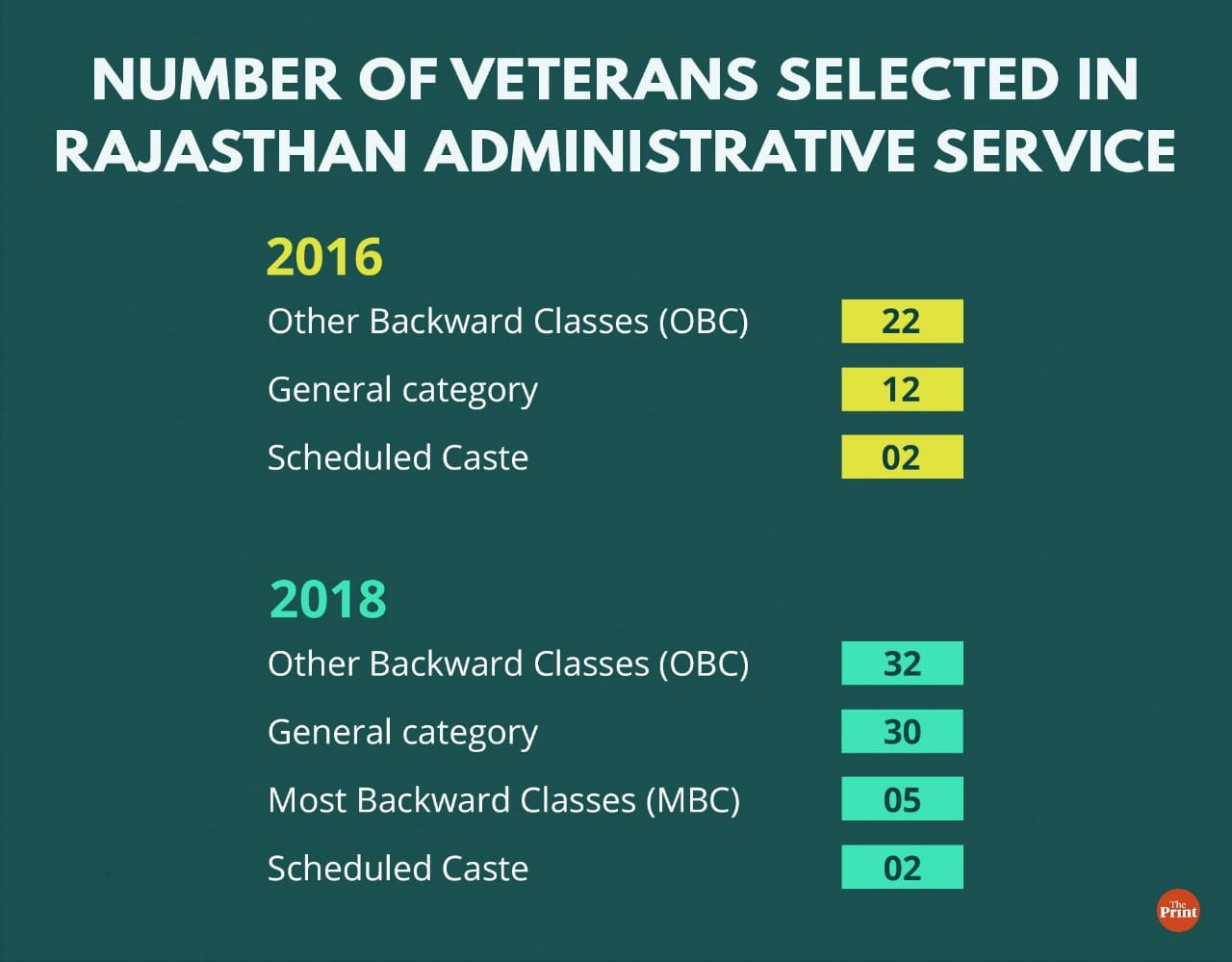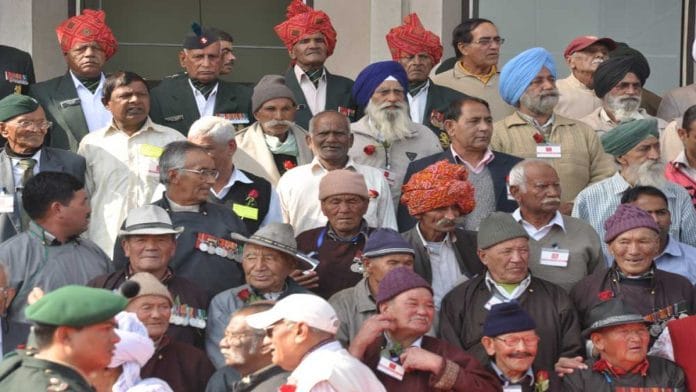The vexing issue of reservation for military veterans in government jobs in Rajasthan reverberates across the state, which provides a disproportionate number of soldiers to the three armed forces. On 28 November, the president of Rajasthan State Ex-Services League, Lt Gen SPS Katewa, petitioned the Governor seeking his intervention after the Ashok Gehlot government tweaked the existing quota rules for veterans. The matter recently came to a head with OBC leaders agitating against benefits accruing to veterans in the recently held competitive exams.
Lt Gen Satya Pal Singh Katewa has highlighted a seldom disclosed fact that military veterans have filled only 2.63 percent of the total vacancies in government jobs between 2016 and September 2022. According to him, the Rajasthan government opened 1,73,103 positions across all categories. Out of the three levels of induction, veterans should have been absorbed in 20,919 posts, but managed to fill only 4,552. This means that more than 97 percent posts authorised for veterans didn’t go to them, and lapsed into general recruitment for all.
Since 1988, Rajasthan has been allocating vacancies to veterans over three levels of induction. On 27 December that year, the state Department of Personnel notified the Rajasthan Civil Services (Absorption of Ex-Servicemen) Rules. The Rules reserved for veterans 12.5 percent vacancies in ‘ministerial and subordinate services’ and 15% in class-IV jobs, the lowest level. The former covered the largest number of inductions, from teachers to other specific department or ministerial vacancies. This was amended with an order dated 17 April 2018, which added 5 percent vacancies for veterans in the state civil services.
Also read: Goodbye, General Category. EWS quota ends savarna’s long-enjoyed casteless identity
Why quota for veterans
The rationale behind reserving jobs for veterans is that they have performed special services for the country and hence need to be accommodated in their remaining years of working life. Reservations for veterans are not on account of educational or any social backwardness, far from it. They are part of a clutch of posts reserved for ‘special category’ and, in their case, for services rendered to the country. Widows and disabled are among those who belong to the special category, and are there on account of the peculiar circumstances of their life and the additional difficulties imposed on them.
From this entry scheme, the veterans are channelled into the category stated on their birth certificates, as with all other special category entrants as well as all civil service regulations and registrations. As Rule 2 of the 2018 amendment states: “The reservation for ex-servicemen shall be treated as horizontal reservation and it shall be adjusted in the respective category to which the ex-servicemen belongs.” In 1988, this was covered in Rule 2(4), which declared: “If any ex-servicemen belonging to the Scheduled Caste/Scheduled Tribes is selected against the vacancy reserved for ex-servicemen as laid down in proviso (1), the said selection shall be counted against the overall quota of the reservation that shall be provided for the Scheduled Caste or Scheduled Tribe…”
Since there was no Other Backward Class reservation in 1988, the Rules are limited to SC and ST. And since the number of such candidates from armed forces are extremely limited, they never caught the attention of OBC leaders. But by the time of the 2018 amendment, OBC vacancies had been created, and Rajasthan has an exceptionally large number of soldiers from this category. And they began to excel in the state competitive exams, as well as other departmental vacancies. Recently announced results for the Rajasthan Administrative Services (RAS) were an eye opener to the potential of veterans.

Now OBC leaders want veterans selected as a percentage of the total number of seats for that particular category. So, instead of veterans being taken as a united whole, they are likely to be divided into caste categories if the Rajasthan government accepts the demands made. Hitherto they were classified as veterans and sat for the exams with the same cut-off marks, but now they are to be divided from the commencement of the process. This is alien to their thinking, training and socialisation. After all, veterans have trained and served as soldiers, never divided by caste.
Simple arithmetic suggests that this compartmentalisation of horizontal reservation is also going to result in declining selection of veterans in state government jobs. If there are 50 veteran vacancies in RAS, for example, 5 percent of that would mean 2.5 percent. Not much imagination is required to see the consequences for veterans in the case of compartmentalisation. Lawyers and courts are going to be suitably occupied for sure, but not the veterans who have given their best years to the country – the years they served side by side, united by uniform, only to be now divided by caste. Consequences will be unhealthy.
Manvendra Singh is a Congress leader, Editor-in-Chief of Defence & Security Alert and Chairman, Soldier Welfare Advisory Committee, Rajasthan. He tweets @ManvendraJasol. Views are personal.
(Edited by Prashant)






